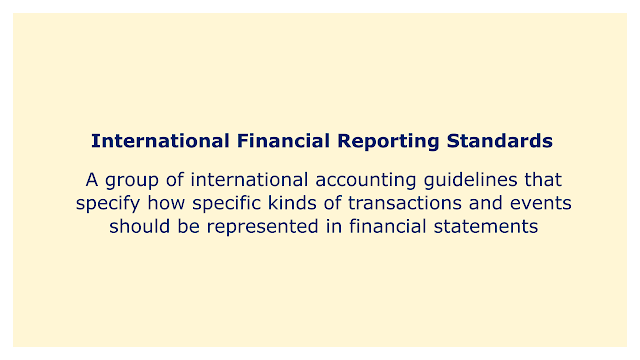 |
| Image: Moneybestpal.com |
The International Financial Reporting Standards (IFRS) is a group of international accounting guidelines that specify how specific kinds of transactions and events should be represented in financial statements. The International Accounting Standards Board (IASB), a company with its headquarters in London, is in charge of maintaining IFRS.
IFRS is used by businesses all across the world, including those in the European Union, Canada, and Australia. Generally Accepted Accounting Principles (GAAP) are the country's preferred accounting standards, however, IFRS adoption is rising there as well (GAAP).
For businesses that conduct business internationally or have investors from other countries, IFRS offers a uniform set of regulations. This consistency contributes to increased openness and comparability between financial statements, which can be crucial for investors trying to decide where to put their capital in an educated manner. By defining a set of precise criteria that businesses must adhere to while preparing their financial statements, IFRS also seeks to lower the risk of financial reporting errors and discrepancies.
IFRS and GAAP share many similarities, yet they also differ in some significant ways. IFRS, for instance, tends to be more principles-based, offering a broad framework for how financial transactions should be reported, whereas GAAP, on the other hand, tends to be more rules-based, offering more detailed instructions on how transactions should be recorded. Also, IFRS tends to lay greater emphasis on the economic substance of transactions while GAAP tends to emphasize legal form.
Notwithstanding these differences, IFRS and GAAP both play a crucial part in ensuring that financial reporting is precise, open, and uniform. Businesses must carefully examine which set of guidelines to adhere to in light of their unique circumstances and goals.
